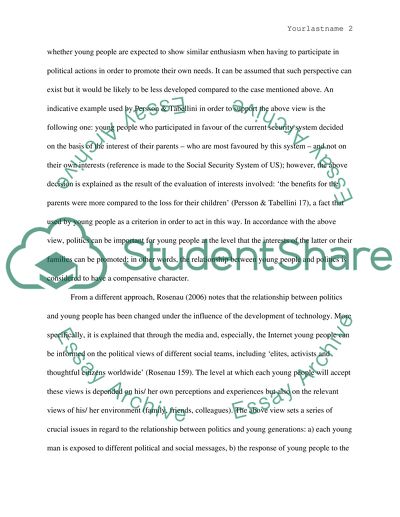Cite this document
(“The importance of politics in young generations Research Paper”, n.d.)
Retrieved from https://studentshare.org/family-consumer-science/1406499-the-importance-of-politics-in-young-generations
Retrieved from https://studentshare.org/family-consumer-science/1406499-the-importance-of-politics-in-young-generations
(The Importance of Politics in Young Generations Research Paper)
https://studentshare.org/family-consumer-science/1406499-the-importance-of-politics-in-young-generations.
https://studentshare.org/family-consumer-science/1406499-the-importance-of-politics-in-young-generations.
“The Importance of Politics in Young Generations Research Paper”, n.d. https://studentshare.org/family-consumer-science/1406499-the-importance-of-politics-in-young-generations.


